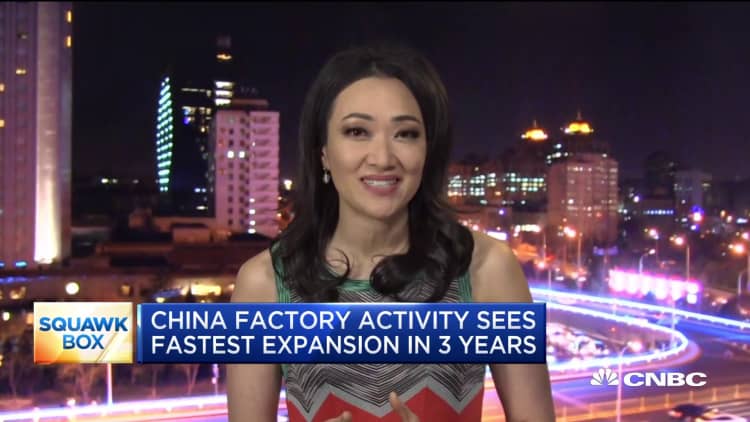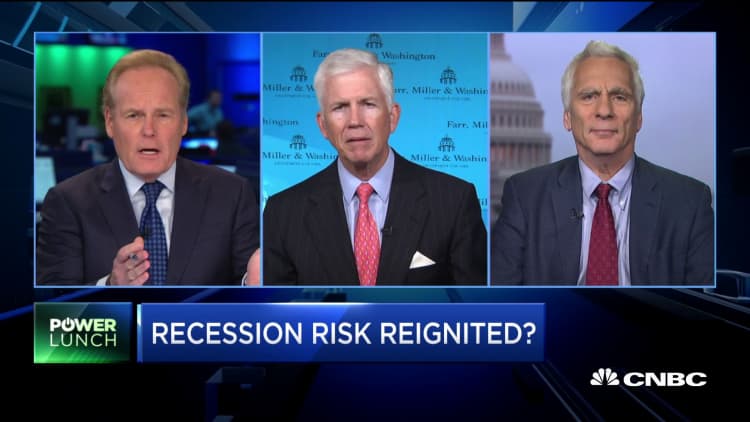A private survey on Monday showed China's manufacturing activity expanded more than expected in November as the Caixin/Markit manufacturing Purchasing Managers' Index (PMI) came in at 51.8.
Caixin and IHS Markit said in a joint press release that the pace of improvement was the strongest since December 2016.
The index was expected to have fallen to 51.4 in November from 51.7 in October, according to economists polled by Reuters.

PMI readings above 50 indicate expansion, while those below that level signal contraction.
Caixin and IHS Markit said the PMI data signaled a "further modest improvement" in the health of China's manufacturing sector attributed to "solid increases" in output and new business. Employment in the sector also remained broadly stable, they added.
China's official PMI was 50.2 in November, up from 49.3 in October to hit its highest level since March, China's National Bureau of Statistics said on Saturday.
The official PMI survey typically polls a large proportion of big businesses and state-owned enterprises. The Caixin indicator features a bigger mix of small- and medium-sized firms.
"The synchronized improvement in the survey data does point toward some uptick in growth last month," said Julian Evans-Pritchard, senior China economist at Capital Economics, a consultancy.
The data come as U.S. and China remained locked in a long-drawn trade dispute that has weighed on sentiment.

In November, "business confidence remained subdued, as concerns about policies and market conditions persisted, and their willingness to replenish stocks remained limited," wrote Zhengsheng Zhong, director of macroeconomic analysis at CEBM Group, a subsidiary of Caixin.
"This is a major constraint on economic recovery, which requires continuous policy support," Zhong added.
But, investors around the world have been eagerly awaiting the signing of a trade agreement since Trump said in October that the U.S. had come to a "very substantial phase one deal" with China.
"If trade negotiations between China and the U.S. can progress in the next phase and business confidence can be repaired effectively, manufacturing production and investment is likely to see a solid improvement," Zhong said.
Capital Economic's Evans-Pritchard was less upbeat.
"With credit growth slowing and property construction still expanding at an unsustainable rate, we doubt (the data) signals the bottom of the current economic cycle," Evans-Pritchard said in a note on Monday.


